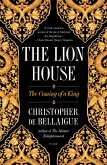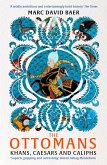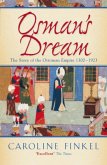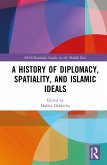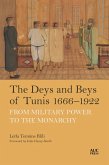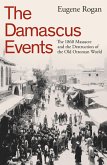How Turkish poetry became the preferred mode for communicating, debating, and shaping political and social experience in the early Ottoman Empire
Occasions for Poetry is a history of how Turkish poetry became the preferred mode for communicating, debating, and shaping political and social experience in the early Ottoman Empire. After the conquest of Constantinople in 1453, Ottoman elites at the imperial court turned to poetry to craft distinctive modes of expression in order to articulate their own place within the Ottoman sultanate.
Placing Ottoman court poetry in its social and historical context, Oscar Aguirre-Mandujano argues that poetry functioned as a political act. Aguirre-Mandujano examines the occasions that compelled the Ottomans to compose poetry, to present it to their superiors, to share it with their peers, and to spend considerable efforts and time to make poetry often and to make it well. He explores how scholars and bureaucrats interacted with each other through poetic imagery, revealing how literary language affected bureaucratic practice. Poetry was not only an artistic activity, but also a means to advance or save one's own political or bureaucratic career.
For the Ottoman elite, poetry was more than a creative activity or a flattering description of Ottoman power and expansion; it was a vehicle to shape and mold their social reality. The language and genres created and used by these early modern Ottomans would define both a literary tradition and the shape of imperial politics and power for almost six centuries, until the end of the empire in the twentieth century.
Occasions for Poetry is a history of how Turkish poetry became the preferred mode for communicating, debating, and shaping political and social experience in the early Ottoman Empire. After the conquest of Constantinople in 1453, Ottoman elites at the imperial court turned to poetry to craft distinctive modes of expression in order to articulate their own place within the Ottoman sultanate.
Placing Ottoman court poetry in its social and historical context, Oscar Aguirre-Mandujano argues that poetry functioned as a political act. Aguirre-Mandujano examines the occasions that compelled the Ottomans to compose poetry, to present it to their superiors, to share it with their peers, and to spend considerable efforts and time to make poetry often and to make it well. He explores how scholars and bureaucrats interacted with each other through poetic imagery, revealing how literary language affected bureaucratic practice. Poetry was not only an artistic activity, but also a means to advance or save one's own political or bureaucratic career.
For the Ottoman elite, poetry was more than a creative activity or a flattering description of Ottoman power and expansion; it was a vehicle to shape and mold their social reality. The language and genres created and used by these early modern Ottomans would define both a literary tradition and the shape of imperial politics and power for almost six centuries, until the end of the empire in the twentieth century.
Dieser Download kann aus rechtlichen Gründen nur mit Rechnungsadresse in A, D ausgeliefert werden.



